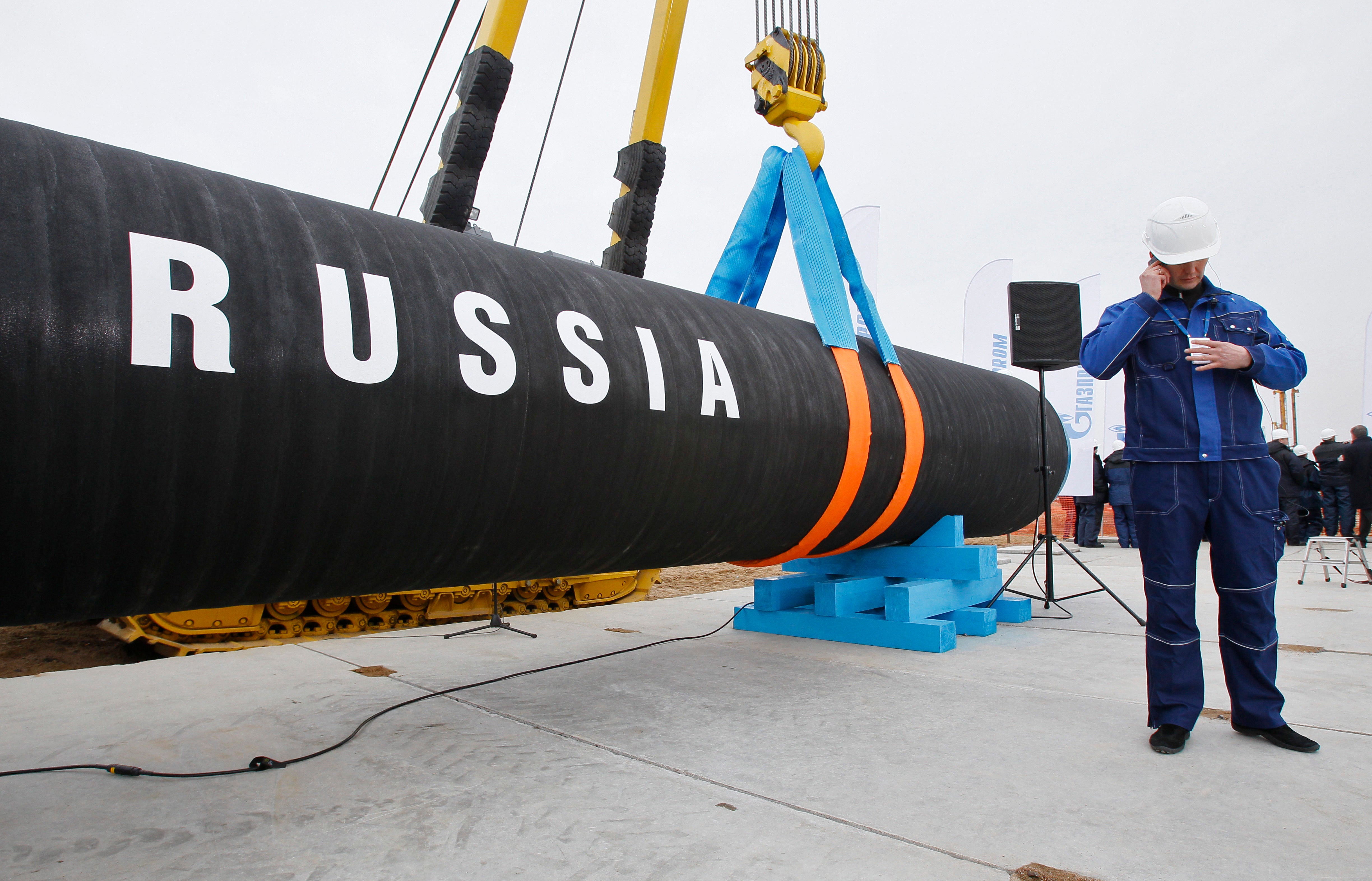Russia’s Gazprom keeps gas pipeline to Germany switched off
Russian energy giant Gazprom says it can’t resume the supply of natural gas through a key pipeline to Germany for now because of what it said was a need for urgent maintenance work

Your support helps us to tell the story
From reproductive rights to climate change to Big Tech, The Independent is on the ground when the story is developing. Whether it's investigating the financials of Elon Musk's pro-Trump PAC or producing our latest documentary, 'The A Word', which shines a light on the American women fighting for reproductive rights, we know how important it is to parse out the facts from the messaging.
At such a critical moment in US history, we need reporters on the ground. Your donation allows us to keep sending journalists to speak to both sides of the story.
The Independent is trusted by Americans across the entire political spectrum. And unlike many other quality news outlets, we choose not to lock Americans out of our reporting and analysis with paywalls. We believe quality journalism should be available to everyone, paid for by those who can afford it.
Your support makes all the difference.Europe’s energy crisis loomed larger Friday after Russian energy giant Gazprom said it couldn't resume the supply of natural gas through a key pipeline to Germany for now, citing what it said was a need for urgent maintenance work to repair key components, just hours before it was due to restart deliveries.
The Russian state-run energy company had shut down the Nord Stream 1 pipeline on Wednesday for what it said would be three days of maintenance.
It said in a social media post Friday evening that it had identified “malfunctions” of a turbine and added that the pipeline would not work unless those were eliminated.
It was the latest development in a saga in which Gazprom has advanced technical problems as the reason for reducing gas flows through Nord Stream 1 — explanations that German officials have rejected as a cover for a political power play following Russia's invasion of Ukraine.
European utilities have scrambled to find additional supply during the summer months to get ready for the winter’s heating demands, buying expensive liquefied gas that comes by ship, while additional supplies have come by pipeline from Norway and Azerbaijan.
Fears of a winter shortage have eased somewhat as storage has progressed, but a complete cutoff could present Europe with serious difficulties, analysts say. The European Union needs to step up efforts to reduce gas consumption, said energy policy expert Simone Tagliapietra at the Bruegel think tank in Brussels.
The continuing interruptions from Gazrpom mean that “a winter with zero Russian gas is the central scenario for Europe.” he said. “There is only one way to prepare for that: reducing gas and electricity demand.”
Gazprom said it had identified oil leaks from four turbines at the Portovaya compressor station at the Russian end of the pipeline, including the sole operational one. It claimed to have received warnings from Russia’s industrial safety watchdog that the leaks “do not allow for safe, trouble-free operation of the gas turbine engine.”
“In connection with this, it is necessary to take appropriate measures and suspend further operation of the … gas compressor unit in connection with the identified gross (safety) violations,” the company said.
Gazprom started cutting supplies through Nord Stream 1 in mid-June, blaming delays to the delivery of a turbine that had been sent to Canada for repair. Canada has since allowed the turbine's delivery to Germany, which has said that nothing stands in the way of it being sent to Russia other than Russia saying it wants the part.
In recent weeks, Nord Stream 1 has been running at only 20% of capacity.
Russia, which before the reductions started accounted for a bit more than a third of Germany’s gas supplies, has also reduced the flow of gas to other European countries which have sided with Ukraine in the war.
Natural gas is used to power industry, heat homes and offices, and generate electricity. Increasing the amount in reserve has been a key focus of the German government since Russia invaded Ukraine, to avoid rationing for industry as demand rises in the winter.
Germany's storage facilities are now over 84% full.
The head of Germany’s network regulatory agency, Klaus Mueller, tweeted that the Russian decision to keep Nord Stream 1 switched off for now increases the significance of new liquefied natural gas terminals that Germany plans to start running this winter, gas storage and “significant needs to save” gas.
It is “good that Germany is now better prepared, but now it comes down to everyone,” Mueller added.
Germany’s Economy Ministry said it had “taken note” of Gazprom’s latest announcement and wouldn’t comment on it directly, but added that “we have already seen Russia’s unreliability in recent weeks” and continued efforts to reduce the country’s reliance on Russian energy imports.
“Of course these are difficult times but we will continue to strengthen provisions consistently,” the ministry said in a statement. “Great efforts are still needed but we are on a good path to coping with the situation.”
The European Union has just reached its goal of filling its gas storage to 80%, ahead of a Nov. 1 deadline, despite Russian supply cutbacks.
___
Kozlowska contributed from London. David McHugh in Frankfurt also contributed to this story.
___
Follow all of AP’s coverage of the war in Ukraine at https://apnews.com/hub/russia-ukraine